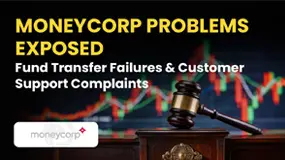Abstract:Forex hedging is a method of protecting one's position in a currency pair against a negative move. Short-term protection is generally utilized by traders who are worried about news or an event that may cause volatility in currency markets.

Forex hedging is a method of protecting one's position in a currency pair against a negative move. Short-term protection is generally utilized by traders who are worried about news or an event that may cause volatility in currency markets. The two most common methods for hedging currency pairings in this way include: Taking the opposite position in the same currency pair serves as a hedge while purchasing forex options does the same.
For more educational news, check out the WikiFX app on both desktop and mobile. (www.wikifx.com/en/)

Strategy No. 1
By maintaining both a short and a long position in a currency pair, a forex trader may build a “hedge” to protect an existing position against a decrease in the value of that pair. This kind of hedging is regarded as a “perfect hedge” since it eliminates all risk (and hence all reward) from the transaction while it is in operation.

Although selling a currency pair in which you have a long position may seem strange since the two opposing positions counter each other, it is more frequent than you may believe. Instead of liquidating a long or short position, a trader may initiate an opposite transaction to provide a short-term hedge in anticipation of important news or a major event.
Surprisingly, this sort of hedging is not permitted by US forex traders. Firms must instead net out the two holdings by classifying the contradictory deal as a “close” order. The outcome of a “netted out” deal and a hedged trade, on the other hand, is practically the same.
Strategy No. 2
To protect an existing position, a forex trader may use forex options to establish a “hedge” against an adverse change in the currency pair. Because only some of the risk (and hence some of the potential return) is eliminated, this strategy is referred to as an “imperfect hedge” by some.

Long-term investors in a currency pair may use put option contracts to limit downside risk, while short-term investors in the currency pair can use call option contracts to reduce upside risk.
The Drawbacks of Imperfect Risk Hedging
An upfront premium is exchanged for a right to sell a currency pair to the seller at a predetermined price (the strike price) on or before a certain date (the expiry date).
For example, suppose a forex trader is long EUR/USD at 1.2575, expecting the currency pair to rise but fearful that it may fall if an imminent economic statement proves bad. The trader might mitigate risk by acquiring a put option contract with a strike price below the current exchange rate, such as 1.2550, and an expiry date after the economic statement.

If the announcement passes and the EUR/USD does not fall, the trader may stay holding the long EUR/USD position, perhaps profiting even more as it rises. Keep in mind that the short-term hedging did come at the expense of the price paid for the put option transaction.
If the news is delayed and the EUR/USD begins to fall, the trader does not need to be concerned as much since they put limits on some of the risks. Short-term losses are 25 basis points (0.0025 pips) in this example (1.2575-1.2550 = 0.0025), plus any premium paid for the options contract when an open long put position is established. This risk is in addition to the premium. It does not matter whether the EUR/USD price falls to 1.2450 since the put may be executed at 1.2550 regardless of current market pricing.
Inadequate Upside Risk Hedges
Call options contracts give the buyer the right, but not the obligation, to acquire a currency pair at a strike price or before the expiration date in exchange for an upfront premium.
For example, suppose a forex trader is short GBP/USD at 1.4225, expecting the currency pair to fall but afraid that the currency pair may rise if the impending Parliamentary vote is positive. The trader might mitigate some of the risks by purchasing a call option contract with a strike price above the current exchange rate, such as 1.4275, and an expiry date after the planned vote.
If the vote passes and the GBP/USD does not rise, the trader may carry on to the short GBP/USD position, profiting as it falls. When the GBP/USD continues above the strike and the call expires, the cost of the short-term hedge is equal to the premium paid for the call option contract.
There is no reason for the trader to be concerned if the vote is successful and therefore the GBP/USD rises because, with a call option, the trader's risk is limited to 50 pip (or 0.0050 cents) of difference between the pair's value at the time of purchase and the strike price of the option, plus any premium paid for the options contract.
It doesn't matter if the GBP/USD price increases to 1.4375; the maximum risk is just 50 pips plus premium, since the call may be used to cover one's short GBP/USD position and buy the pair at the 1.4275 strike price.
WikiFX is available for free download on the App Store and Google Play Store.














